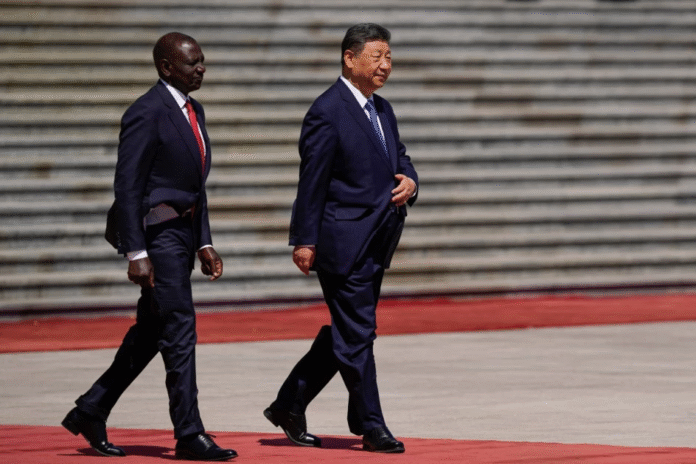
Lawmakers in the United States Senate have raised concerns over Kenya’s loyalty to Washington, following President William Ruto’s high-profile visit to China, which they say signals a growing alignment with Beijing — and possibly Moscow.
The trip, made at the invitation of Chinese President Xi Jinping, saw Ruto pitch Kenya and China as “co-architects of a new world order,” a remark that has sparked outrage among American legislators amid the ongoing U.S.-China trade war and deepening global East-West tensions.
“Just last month, President Ruto declared that Kenya, a major non-NATO ally, and China are ‘co-architects of a new world order.’ That’s not just alignment to China; it’s allegiance,” U.S. Senator Jim Risch said during a Senate Foreign Relations Committee hearing on Tuesday.
Senator Risch, who chairs the influential committee, warned that the U.S. must reassess its relationship with African countries such as Kenya that are increasingly embracing China — and by extension, Russia — at the expense of Western interests.
“Relying on leaders who embrace Beijing so openly is an error,” he said. “America’s partnerships in Africa must be part of a broad strategic effort to protect U.S. interests, not compromise them.”
Ruto’s visit to Beijing came just months after his historic May 2024 trip to Washington, where Kenya was designated a major non-NATO ally — a move that granted Nairobi access to advanced military equipment, training, and financial support.
For years, Kenya has been a key partner in U.S. counterterrorism operations in East Africa, particularly in Somalia, and previously engaged in talks with the Trump administration over a potential free trade agreement, a first for sub-Saharan Africa.
However, Risch cautioned against anchoring U.S. foreign policy on African leaders, saying Washington should focus on strengthening institutions and empowering youth, rather than individuals whose loyalties are unclear.
He also suggested that U.S. support in Africa must come with a reassessment of value and alignment, especially when governments appear to lean heavily toward America’s geopolitical rivals.
“Many of these governments are not wholly legitimate,” Risch said. “We must stop building U.S. policy in Africa around individual leaders.”
Kenya’s growing trade and investment ties with China — its largest trading partner — are viewed by some American lawmakers as a threat to U.S. influence in East Africa. Kenya, meanwhile, remains China’s biggest trade partner in the region.
Despite the criticism, Ruto has maintained that Kenya is pursuing a non-aligned foreign policy.
“We are neither facing east nor west. Kenya is facing forward,” Ruto has previously stated, adding that Nairobi can serve as a bridge between East and West in a multipolar world.
Still, the rhetoric and recent engagements with China have left Washington uneasy — and the future of Kenya-U.S. relations hangs in the balance.






